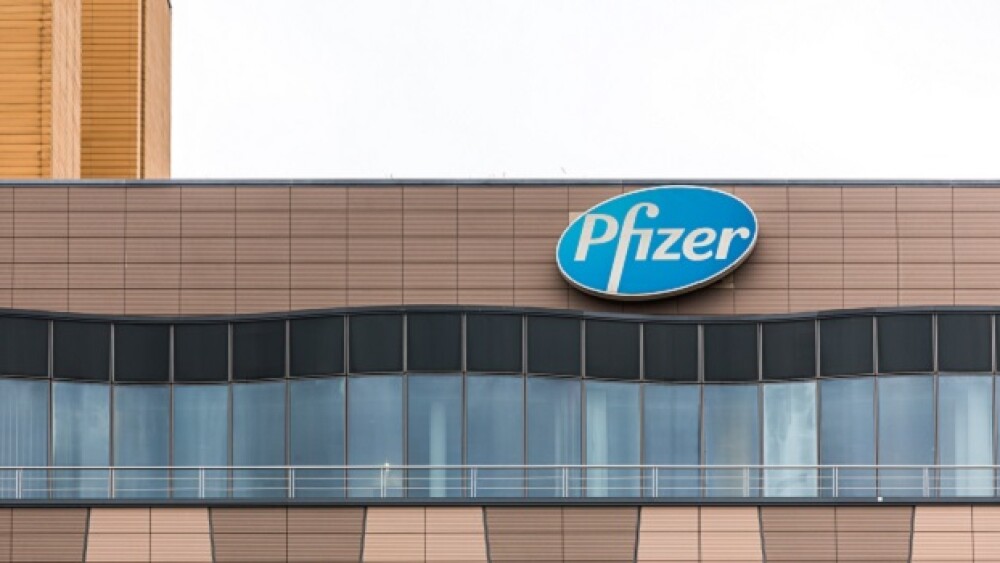Prevnar 20 is indicated for the prevention of invasive pneumococcal disease and otitis media in children.
Pictured: Blue and white Pfizer sign on building/Tobias Arhelger/Adobe Stock
The FDA has approved Pfizer’s Prevnar 20 (20-valent Pneumococcal Conjugate Vaccine) for use in infants and children from six weeks to 17 years of age, the company announced Thursday.
Prevnar 20 can now be used to prevent invasive pneumococcal disease (IPD) as caused by the 20 serotypes of Streptococcus pneumoniae contained in the vaccine in these pediatric patients. Children aged 6 weeks through 5 years can also receive the shot for the prevention of otitis media caused by seven of the 20 serotypes.
Prevnar 20’s approval introduces an expanded vaccine option to provide children “with the broadest serotype protection,” providing immunity against 20 serotypes, including those associated with heavy disease burden in children younger than five years, Sheldon Kaplan, chief, Division of Infectious Diseases, Department of Pediatrics, Baylor College of Medicine, said in a statement.
Moreover, Prevnar 20 “builds on more than 20 years of real-world impact with PREVNAR and PREVNAR 13,” Annaliesa Anderson, senior vice president and chief scientific officer, Vaccine Research and Development, Pfizer, added.
The FDA licensed Prevnar, Pfizer’s first pneumococcal vaccine, in 2000, and it contained seven S. pneumoniae serotypes. The same year, the seven-valent vaccine was rolled out in children and was found to be highly effective against IPD caused by these seven bacterial serotypes.
The company expanded this seven-serotype coverage in 2010, when it won FDA approval for Prevnar 13, which provided protection against IPD in young children, as caused by 13 S. pneumoniae types.
A Strong Evidence Base
Pfizer supported the supplemental Biologics License Application (sBLA) for Prevnar 20, which the FDA accepted and granted Priority Review in January, with data from a proof-of-concept Phase II study and several Phase III pediatric trials.
In October 2020, the company posted positive data from the Phase II study, showing that the 20-serotype vaccine was just as safe as its 13-serotype version, which had previously been approved in 2016. Immunogenicity analysis showed that the investigational vaccine elicited immune responses against all 20 serotypes after the third dose.
In August 2022, topline data from a pivotal Phase III study in the U.S. revealed that a four-dose series of the investigational 20-valent vaccine led to robust immunity against all serotypes with a favorable safety and tolerability profile. These findings were confirmed a month later with data from a similar study conducted in the European Union.
Tristan Manalac is an independent science writer based in metro Manila, Philippines. He can be reached at tristan@tristanmanalac.com or tristan.manalac@biospace.com






